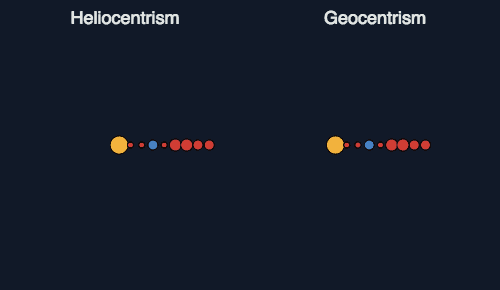Fun page with art sometimesPortfolio: intestinesandwichdrawsactually
Don't wanna be here? Send us removal request.
Text
Shonen Jump contest entry!
https://medibang.com/book/kk1612180456593550002054985/view/
If you like it, please vote for me!
6 notes
·
View notes
Video
vine
Things in Common with a Teen Titan 💥 (W/ Greg Cipes, The Voice of Beast Boy)
74K notes
·
View notes
Photo

Woah?! What’s this?! Could it be the logo for my soon to be webcomic: Monstrocity?! Why yes it is. Ain’t that hype?
32 notes
·
View notes
Photo










178K notes
·
View notes
Text
The best notes written in manuscripts by medieval monks
Colophon: a statement at the end of a book containing the scribe or owner’s name, date of completion, or bitching about how hard it is to write a book in the dark ages
Oh, my hand
The parchment is very hairy
Thank God it will soon be dark
St. Patrick of Armagh, deliver me from writing
Now I’ve written the whole thing; for Christ’s sake give me a drink
Oh d fuckin abbot
Massive hangover
Whoever translated these Gospels did a very poor job
Cursed be the pesty cat that urinated over this book during the night
If someone else would like such a handsome book, come and look me up in Paris, across from the Notre Dame cathedral
I shall remember, O Christ, that I am writing of Thee, because I am wrecked today
Do not reproach me concerning the letters, the ink is bad and the parchment scanty and the day is dark
11 golden letters, 8 shilling each; 700 letters with double shafts, 7 shilling for each hundred; and 35 quires of text, each 16 leaves, at 3 shilling each. For such an amount I won’t write again
Here ends the second part of the title work of Brother Thomas Aquinas of the Dominican Order; very long, very verbose; and very tedious for the scribe; thank God, thank God, and again thank God
If anyone take away this book, let him die the death, let him be fried in a pan; let the falling sickness and fever seize him; let him be broken on the wheel, and hanged. Amen
186K notes
·
View notes
Text
Okay okay just one more tiny Anders Discourse post. (feel free to scroll on by)
I’ve seen of number of comments and tags, both recently and more generally, from players who are pro-mage but nevertheless are mad at Anders for “making it worse” or “making it harder” for the mages, or “setting things back.” I feel that this is kind of taking the wrong view.
It’s certainly true that what Anders did broke down negotiations in a big way, in the short term. He removed the chance of compromise, as he says himself. But I feel it’s worth pointing out that mages before Anders had been not blowing up buildings for nine hundred years, and their position was no better for it.
Over those nine hundred years the Chantry had plenty of time to sanitize its anti-magic theology, militarize the Templar Order, thoroughly disseminate its anti-mage philosophy into the civilian population and monetize the Tranquil mages into a major block of its cash flow. If you look at the history of the Circle of Magi, conditions had been deteriorating steadily for centuries: the Circles went from being self-governed centers of study and learning to being holding pens for depersonalized captives awaiting, as the Magi Origin puts it, a variety of deaths of the body or spirit. I don’t really have access to the sort of broad data across Thedas I’d need to pick out trends, but here’s a statistic for you: over those nine hundred years, there were seventeen total Annulments – an average of one about every fifty years – and over the last ten years of gameplay we see no less than three.
Things were not better and there was no reason to think they were going to get better. There was absolutely no incentive on the part of those in power to make things better, and huge pressure to keep the status quo. The Templars didn’t walk out on the Chantry because of Kirkwall; they walked out when they thought the Divine was being too nice to mages. No Divine, no Chantry administration would ever have granted the mages freedom. Not Justinia, not anyone. They could not, not without invalidating their entire power base and annihilating themselves.
The power imbalance between the Chantry and the Mages in this scenario is far too lopsided for compromise to ever be possible. When one party has total life-and-death power over the other party – as the Templars do over the mages – it is impossible to negotiate in good faith. Negotiations between the mages and the Chantry, to use a setting-appropriate analogy, are the wolf and the sheep trying to compromise on what to have for dinner. No matter what kind of reforms were instituted, so long as the Chantry retained absolute life or death power over the mages, things would inevitably slide right back to the way they were at the start of the game. ‘Reforms’ would never go far enough.
Staying in their towers, obeying the rules and asking nicely for the Chantry to change its mind would never have worked, not after nine years or nine hundred. Freedom is not something that the oppressed can buy from their oppressors with good behavior.
There are some values that should never be compromised. Basic human rights is one of them. The mages deserve to be free. Not imprisoned with slightly better conditions – free. It was on that point that Anders refused to compromise. And he was right.
715 notes
·
View notes
Photo

The difference between an easy model and a complicated one.
Heliocentrism and geocentrism
218K notes
·
View notes
Conversation
Genie: I grant you 3 wishes. What is your first wish?
Me: I wish somebody loved me
Genie: it is done
Me [looking around]: ...where are they?
Genie: *averts eyes & starts to blush*
63K notes
·
View notes
Video
tumblr
i am the most obnoxious person i know
403K notes
·
View notes
Photo
What To Wear: Summer Weekends
Human entrails, Rocket shells and Tiny witty knives

what to wear: summer weekends
shop the look here.
1K notes
·
View notes
Photo

Corbin the Incubus
0 notes
Photo

Corbin the Incubus
0 notes
Text
Terminology
I am going to do a break down of the various terminology as it is accepted in most Romani academic circles. I realize that this can be very confusing, especially to those outside our ethnicity and culture, and even to those who were raised in our culture, but do not have a full grasp of our language. I must also note that self-identification varies amongst us and many of our own people may not recognize what is considered proper terminology. “Gypsy” - The pejorative term created by the British in the 1500s. The term was created to identify only those who are Romani, most specifically those who we now call UK Romany & the Romanichal. It was never intended to be used as a descriptor for any other ethnic population. It comes from the Old English term for Egyptian, and not Greek. It is a slur. Romani - The term that refers to our entire ethnic population, including the Sinti. It refers to the ethnic population that left Northern India & Pakistan shortly after the invasion of the Persian Muslims who have since settled in Trukey, all of Europe, and the Americas. The term is used to refer to our culture & language in relation to the entire ethnic population: Romani culture, Romani language, Romani people, Romani ethnicity. Romany - The population of Romani who settled in the British Isles sometime in the late 14th century. They have since become two distinct populations self identifying as either Romany or Romanichal. This spelling is typically used to refer only to the ”native” Romani population of the region. It does not inculde more recent Romani immigrants or refugees from continental Europe. Romany is typically prefixed by British, UK, English, or another identifier of where in the region they have settled & lived. Ex: Some Romani families have lived in the UK for one hundred years or more and they have even picked up some words from the Rromanes dialect spoken by the UK Romany. Sinti - The self-identifier of a sub-ethnic population of the Romani people who live in Germany, Austria, regions of Central Europe, and the United States of America. Many Sinti prefer their identifier over Romani, though they do indeed belong to the Romani ethnic population & their language is a dialect of the Romani language. Rroma - A sub-ethnic group of the Romani population who live throughout Transylvania, Central Europe and Northern Italy. (This is why referring to our entire ethnic population as the Rroma & Sinti tends to be problematic. It is inclusive of only these two very specific Romani sub ethnic populations, when in fact, we have likely over 80 self-identified distinct groups that are considered part of the Romani ethnicity.) Rroma - A Romani woman. The adjective that describes a Romani woman or girl. Ex: I am a Rroma woman, but I belong to the Romani people. Rromni - A Romani woman who is married. A wife. Ex: The Rromni took care of her sick husband. Rrom - A Romani man. The adjective that describes a Romani man or boy. Ex: The old Rrom told us stories about our history. Rromanes - The language of the Romani people. Sometimes referred to as “Romani chib”, which means “Romani tongue”. This includes all dialects of the Romani language spoken in all of Europe, Turkey, South Africa, as well as North, Central & South America. Dom - A sister population of the Romani ethnicity. They are believed to be descendants of similar North Indian & Pakistani ethnic groups. They likely began their diaspora before the people who are today considered the Romani. The Dom live throughout Northern Africa, the Middle East & Central Asia. Domari - The language of the Dom people. Lom - Speculatively related to the Romani in the same way as the Domari: a population of mixed Northern Indian ethnic groups who began their diaspora before the population that is considered the Romani. They settled mostly in the Caucasus Mountains, and largely in Armenia. Lomavren - The language of the Lom people. The Romani, Dom & Lom are related to some degree, but the exact relation is still contested by some. The Dom & Lom are sometimes lumped under the pejorative exonym, “gypsy”, though this term was never ascribed to them until rather recently. When referring to this entire diasporic population from the Indian subcontinent, they should always be termed “The Romani, Dom & Lom”. Of course, order can vary, but the proper terms should be utilized instead of “gypsy”. Single “R” & double “Rr” spellings - Both manner of spellings are correct. Some dialects use a double “Rr” spelling for phonetics purposes, while other use it to distinguish us from Romanians & inhabitants of Rome, Italy. Non-Romani Ethnic Populations: There are several ethnic populations that are wrongly lumped under the slur umbrella that is “gypsy”. Many have no relationship to us & should only be discussed in terms of contact. We are entirely separate ethnic populations. (For those who still have not grasped this concept yet.) Pavee - Commonly known as Irish Travellers, they are a sub-ethnic group of Irish who have lived a nomadic existence for several centuries. They reside in Ireland, and the United Kingdom. Some self identify as “Irish Gypsies”, though the bastardization of that term from the UK Romany is a rather contentious topic. Some Pavee have had very close relations with UK Romany, even inter-marrying. However, it is important to note that the Romany & Romani are in no way related to Irish Travellers. We are not only two separate ethnic populations, but we even belong to two separate races. We each have our own lanaguage & culture. Shelta - The language of the Pavee. Banjara - An ethnic population living in Northern India. Though we have been genetically linked to the Banjara, the group is not the only Indian ethnicity that comprised of the initial Romani diasporic population. In fact, we have been linked to a wide variety of ethnic populations that live throughout Northern India, Pakistan, and even Eastern Afghanistan. The Banjara are just one of those many ethnicities. The Banjara are not “gypsies” & they are not Romani. They are Banjara. They are Indian. There are many nomadic peoples throughout Europe. The only ones who are Romani are the Romani. The only ones who are “gypsy” are the Romani, most specifically, the Romany. The Yeniche, Quinqui, Scottish Travellers, Norwegian Travellers, any generic nomadic people, nomads of India, Asia, or any other place on Earth are not Romani & they are not “gypsies”. Not even the Lom & Dom are “gypsies”, or Romani, even though they are our sister ethnic populations. The only people who are Romani are the Romani.
42K notes
·
View notes
Photo

Gandalf Kei with @shuttercrazyphotos
It was an attempt at Mori but it really does look like Gandalf.
6K notes
·
View notes
Photo

when someone says they hate gorillaz
759 notes
·
View notes

